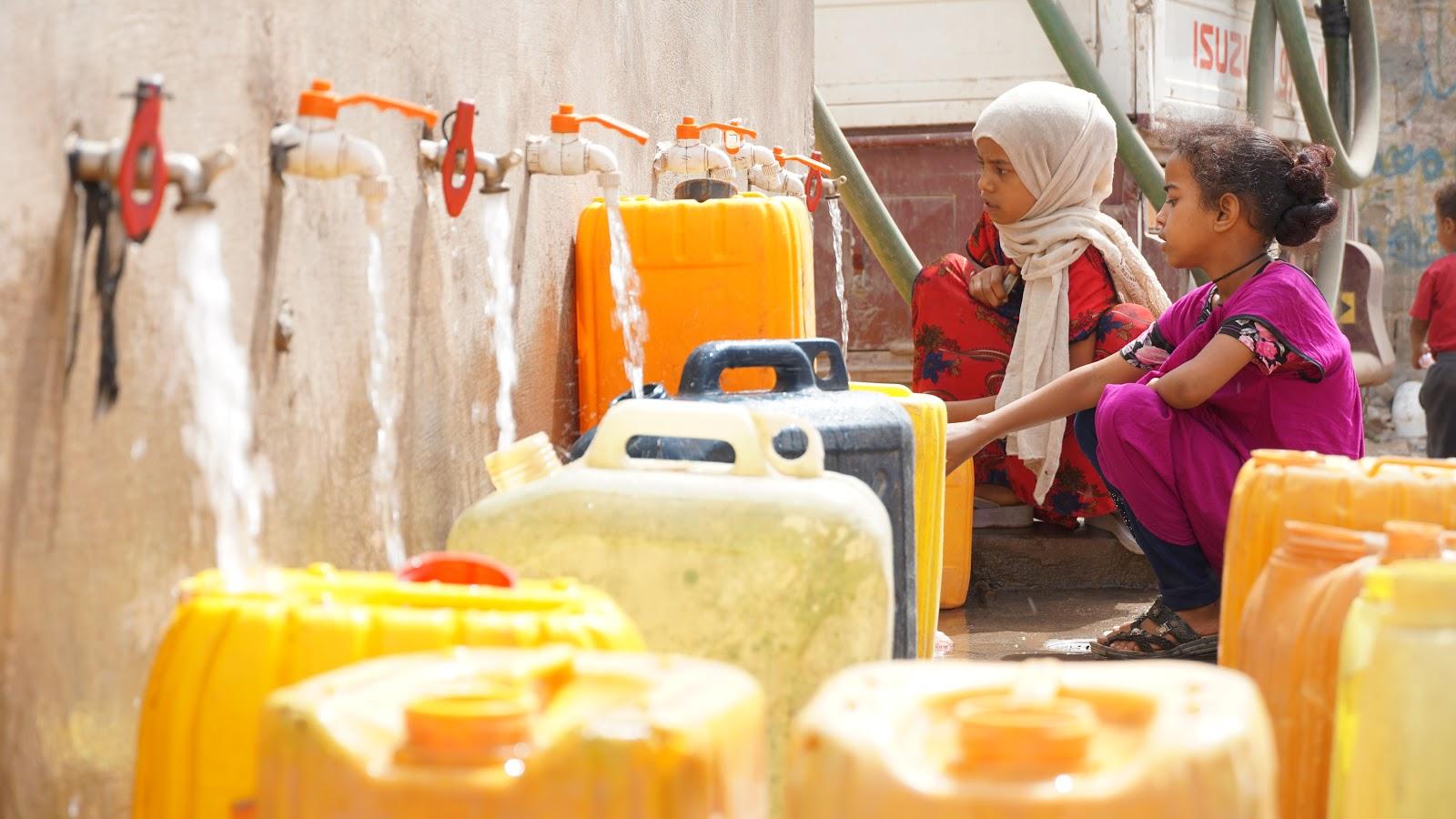Four Ways USAID’s WASH Program is Strengthening Yemen's Resilience against COVID-19

Yemen is suffering from the worst humanitarian crisis in the world as the result of the ongoing conflict – a situation that has been compounded by the COVID-19 pandemic. About 20.7 million Yemenis are in need of humanitarian assistance, including more than 15.4 million people who need support for basic water and sanitation access, according to the United Nations Office for the Coordination of Humanitarian Affairs. Less than half of Yemeni families report having access to soap. For a number of social and cultural reasons, COVID-19 vaccination uptake among Yemenis remains low, with less than 785,000 vaccines administered as of early March, or enough to vaccinate about 1.3 percent of the country’s population.
In this difficult context, USAID’s water, sanitation, and hygiene (WASH) program is strengthening Yemen’s resilience against the COVID-19 pandemic, reaching more than 1.5 million Yemenis in Fiscal Year (FY) 2021. Here’s how:
1. Increasing Access to a Clean Water Supply
USAID is rehabilitating water systems – including supplying and installing pumps and repairing pipes – in urban and rural areas. Some of these water systems directly serve health facilities that are used as COVID-19 treatment centers. In FY 2021, USAID improved access to a clean water supply for 565,625 people.
2. Improving Sanitation Services
USAID is rehabilitating sewage systems and network pipelines, including those that serve COVID-19 treatment centers; installing toilets and handwashing facilities at health facilities; and building household latrines. In FY 2021, these activities benefitted 442,798 people.
3. Promoting Hygiene and Protecting Healthcare Workers
USAID is promoting good hygiene practices, such as proper handwashing techniques using soap and water and safe water handling and storage. USAID distributes hygiene kits, including soap, laundry detergent, chlorine tablets, and other supplies to families in need. USAID is providing personal protective equipment (PPE), including masks, gloves, and cleaning materials to health facilities, helping protect Yemen’s healthcare workforce and mitigate the spread of the disease. These activities reached 129,994 people in FY 2021.
4. Increasing Access to Clean Water and Bathrooms in Schools
USAID rehabilitates school WASH facilities, including installation of new latrines and water tanks. School WASH facilities are critical to provide a productive learning environment and increase school attendance. In FY 2021, USAID support benefitted 377,606 children.
USAID is laying the foundation for a more water-secure Yemen by rehabilitating water and sanitation infrastructure and building the operational and maintenance capacities of local service providers to ensure long-term sustainability.
By Natasha Padgitt, Development Outreach & Communications Specialist, USAID/Yemen.
For more information, visit:


